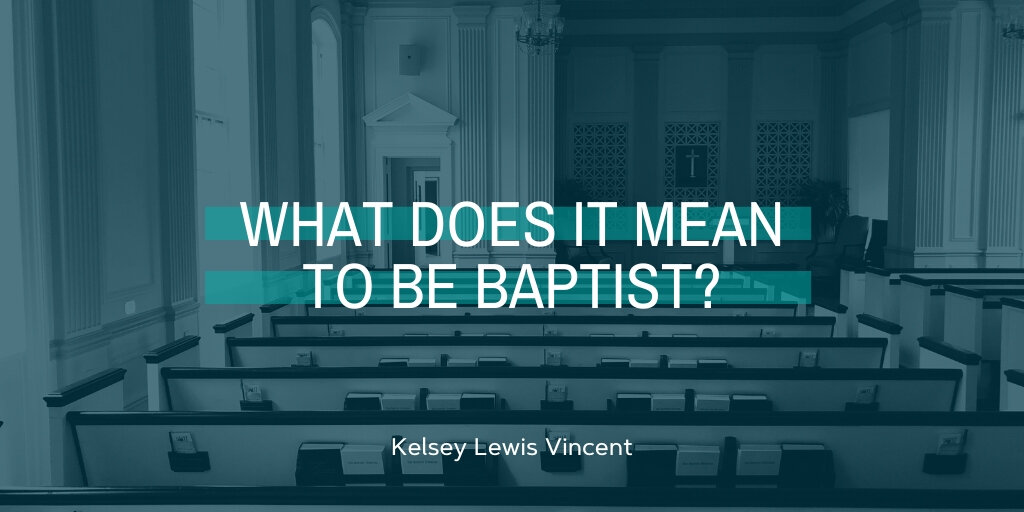What does it mean to be Baptist?
“The potlucks. Definitely the potlucks.”
This was the response of my raised-Catholic husband when I asked him, “What’s the best part of being Baptist?”
While this response definitely isn’t UNTRUE, (it is absolutely a perk) it doesn’t fully encapsulate what it truly means to be Baptist.
Those “Baptist Things”
In my experience, one unfortunate quirk of Baptists is that we are not always great at instilling in everyday churchgoers the core values of a Baptist Christianity and how it differs from other Protestant denominations.
I grew up in a Southern Baptist environment, served as a missionary overseas, and yet until seminary, the only concrete thing I could tell you about my Baptist identity was that we preferred dunking to sprinkling.
Furthermore, a lot of what I thought was “a Baptist thing” wasn’t universally true to Baptists, but more particular to my childhood church and its culture.
For example, I once thought all Baptists (or at least the faithful ones) believed the consumption of alcohol was sinful. You can imagine my confusion when the pastor of the Argentinian church I attended during my missionary service gifted me with a bottle of Argentinian wine!
This is made all the more difficult by the fact that there are countless kinds of Baptist churches: Southern Baptists, American Baptists, Missionary Baptists, Independent Fundamentalist Baptists… the list goes on and on.
The varying theological and cultural beliefs across these types of churches are almost as diverse as Christianity itself. Walk into any given Baptist church on a Sunday and there are very few safe bets about what you might hear taught, who is in leadership, or what kind of worship you’ll participate in.
That said, here are a few core fundamental beliefs that the Baptist faith was founded upon, things that theoretically, we adhere to across Baptist subcategories.
1. The Priesthood of All Believers
While many protestant denominations espouse the idea that all believers have direct access to God, Baptists base much of the Baptist identity around this proclamation. We believe that through Jesus’s mediating redemptive work, all people can have access to God’s presence and that none are more qualified to commune with God than others.
This belief has very important implications for the role of clergy and ordination in Baptist circles. Ordained pastors are not closer to God than their parishioners and therefore are not the sole administers of communion or even Baptism.
While it is common practice in many churches that the pastor presides over communion or baptism, Baptist doctrine does not require this for the observance to be legitimate. For this reason, we can have communion in our homes during remote worship in the pandemic.
With Jesus alone as our mediator to God, ordination does not grant special access to God or special privileges but instead represents a commitment to shepherding and caring for God’s people.
This doctrine is fundamental to a Baptist Identity and has led to a general distaste among Baptists for hierarchy or bureaucracy within the church, which leads us to our next Baptist belief.
2. Congregational Authority
Congregational Authority means that the local congregation has the right to lead itself, conduct itself, and define itself. There is no Baptist Pope that leads them all.
This explains why there is such variation among churches that call themselves Baptists. It also explains why Baptist congregations hire their own ministers, as opposed to our Methodist siblings who have their pastors assigned by their Bishops and regional conferences.
It is up to the congregation to decide upon their own bylaws, to define who makes decisions, and how those decisions are made. Most often it means that Baptists believe in voting. We vote on whom to hire. We vote to approve the budget. We vote on changes big and small and a pastor’s vote counts the same as the new person who just joined the church last week.
Whether it’s within a committee or among the whole congregation, Baptists love voting; however, we tend to have strong opinions on the role of government as it relates to our faith. Which brings us to…
3. Religious Liberty
A Baptist faith is firmly planted in a fundamental belief in Religious Liberty. This means that we firmly believe in the separation of church and state. One the one hand, this means that we generally don’t like our pastor telling us which political candidate to vote for.
On the other hand, we also don’t like the government meddling in religious activities and we believe that all people should be able to worship and observe their religion to the extent that it doesn’t infringe upon the rights of others. We stand against a state church or any laws that would restrict the religious practices of any group of people, whether Christian or some other religion.
[To learn more about Baptists’ current stance on Religious Liberty, visit the Baptist Joint Committee website.]
Often the concept of Religious Liberty is twisted or coded to mean “Christian primacy.” It is used to push Christian prayer in public spaces or the posting of the Ten Commandments in federal or local government offices.
“A Baptist faith is firmly planted in a fundamental belief in Religious Liberty. This means that we firmly believe in the separation of church and state.”
While these are important to our Christian faith, Baptists must understand that these instances are actually the opposite of Religious Liberty, which respects the freedoms of people of all religions to practice their faith without interference from the government.
In keeping with this core value, Baptist must recognize that our right to freely practice our Christian faith is bound up in the Muslim’s right to practice his/her faith, or the Buddhist’s right, or the Atheist’s right to not practice at all.
When we pursue Christian Primacy, we marry the State’s interests with the church’s (which has never gone well in the course of Christian history) and we risk distorting the values of our faith in service of a political agenda.
This is not to say that our faith does not impact how we vote. Many political issues are also moral issues that are informed and shaped by our faith.
Our pastors and leadership offer valuable wisdom as to how Jesus’ teachings and the whole of scripture can be applied to all aspects of our lives, and politics can’t and shouldn’t be compartmentalized away from that. But it is for the good of all that we create a society in which faithful practice—any faithful practice—may be allowed to flourish.
Interested in learning more about Baptist History?
Check out The Baptist Identity: Four Fragile Freedoms by Walter B. Shurden or check back as we’ll be releasing another article soon on Baptist history from David Jordan.
Kelsey Lewis Vincent is the Pastor for Youth and Families at First Baptist Church of Decatur. To read more from her and to see pictures of her most adorable dog, Karl Bark, follow her on Twitter @kelseymloo. You can also read more of her writings here.

